Search Results
Search
Filter results
Advanced Filters
Your search returned 279 Solutions
-
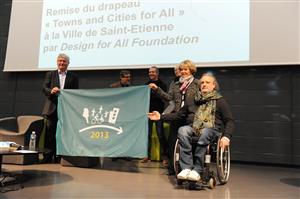
The Network facilitates knowledge-sharing about improving the quality of life in urban centres around the world. Representatives from the public, private and not-for-profit sectors are invited to share good practices on the website. The 'Flag of Towns and Cities for All' is a quality mark awarded to municipalities.
The flag of "Towns and Cities for All" is a quality mark which acknowledges local governments' commitment to implementing Universal Design and accessibility in public places. Facilities, transport, buildings and services are taken into consideration with the aim of improving the quality of life for residents and visitors.
Design for All Foundation, Flagging accessible cities and towns, Spain -
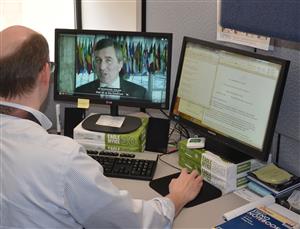
How to support your embassies in producing captioned videos
The Department of State produces or owns nearly 20,000 videos per year in more than 70 languages on a huge range of topics. Using cloud services, the DOS has been able to make the process of captioning videos easier. DOS can now caption live video in two languages, and pre-recorded video in over 70 languages.
US Department of State, Global Video Captioning Program, United States of America -
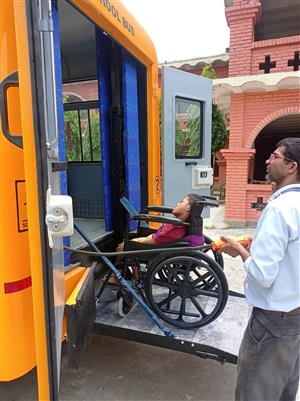
A provincial government creating large-scale enrolment of pupils with disabilities in cooperation with a foundation
Disability Prevention and Rehabilitation Programme, Nepal: A partnership between Koshi Province and Karuna Foundation Nepal since 2008. Constructed 35 accessible schools, enrolling 1,267 children with disabilities. By 2023, expanded DPRP model throughout Koshi Province, with Nepal's government piloting it in other provinces.
Disability Prevention and Rehabilitation Programme (DPRP), Nepal -
Harmonization of ICT standards across the Atlantic
In 2004 the international standards cooperation was initiated to create a framework for developing a wide range of applications that will make ICT products and services more accessible in both continents. Moreover, it facilitates trade between these regions. By 2017, 90% of all standards have been harmonized.
United States Access Board, United States – European Union – U.S. Access Board & European Commission – International e-Accessibility Standards, United States of America -
AMAC provides a cost-effective, replicable, scalable, holistic business model which provides accessible solutions and research for corporate, governmental and non-profit entities supporting post-secondary individuals with disabilities
AMAC offers a one-stop shop for digital and alternative media textbooks, cost-effective reuse of digital libraries, remote captioning and downloadable assistive technology software to quickly access materials at universities, colleges, government agencies, non-profits, and corporations. Over 300,000 textbook title records are updated weekly.
AMAC - Accessibility Solutions & Research Center, Digital Library with more than 300,000 textbooks, United States of America -
The Association of Train Operating Companies (ATOC) has produced a map of the mainland National Rail network in the UK that provides at-a-glance information about the accessibility of many stations.
"Stations Made Easy" allows passengers to evaluate accessibility before they start their journey. Interactive station maps provide detailed information about accessibility at every station on the rail network in Great Britain. Stations Made Easy also allows passengers to identify routes through stations which best meet their needs.
ATOC - Association of Train Operating Companies, Web-based tool to plan access to railway stations, United Kingdom -
Improving access to electoral events
In 2014, New Zealand’s Electoral Commission finalized "Access 2020". This strategy takes the improvements made over the past electoral cycles and embeds them into a longer-term framework. In addition, it provides information and resources in accessible formats and maintains relationships with the disability sector.
Electoral Commission of New Zealand, ACCESS 2020 DISABILITY STRATEGY, New Zealand -
GIS-based mapping and improving of accessible water, sanitation , and hygiene (WASH) facilities
ZWASH is conducting GIS-based mapping to assess the accessibility of toilet facilities in schools and health centres in Zambia. The data will be used by World Vision and government agencies to provide accessible toilets and WASH facilities where they are most needed. ZWASH will be rolled out in more than 40 other countries.
World Vision, Zambia Water Sanitation and Hygiene (ZWASH), Zambia -
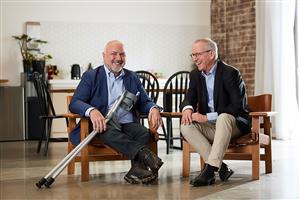
A mentoring programme for more people with disabilities on company boards
Australian Network on Disability's Directing Change Scholarship: A three-year program creating pathways for persons with disabilities in directorial roles. In 2022, received 226 applications, awarded 22 scholarships, and engaged over 300 directors.
Directing Change Scholarship, Australia -
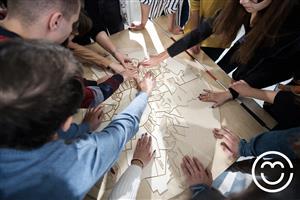
Inclusive club engaging with urban planners to create more accessibility for the blind
The Urban Mobility Club, initiated in Bucharest, is a pan-European community that promotes the inclusion of people with disabilities in the urban life through workshops and other activities. In addition to people with disabilities, representatives of the real estate sector and the administration are encouraged to participate.
The Alternative Methods of Social Integration Association, The Urban Mobility Club, Romania